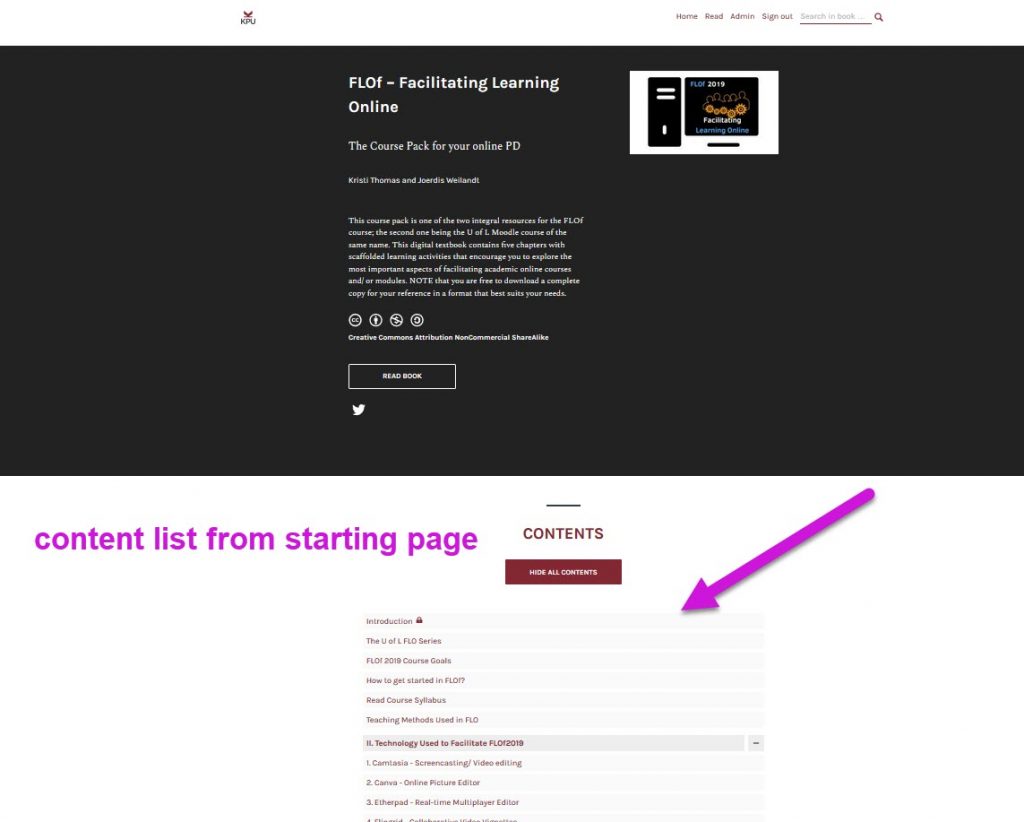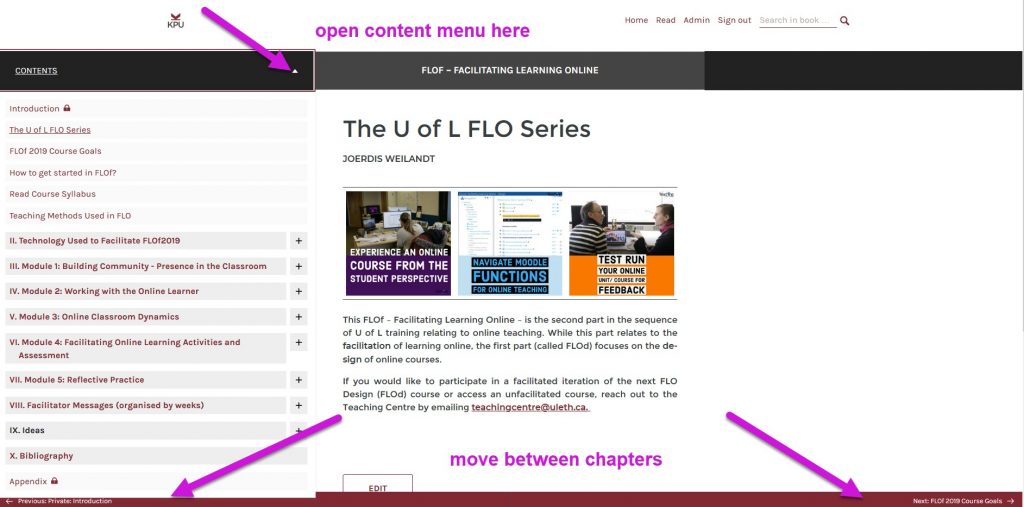Introduction
Kristi Thomas and Joerdis Weilandt
Why this online faculty development course?
Teaching online is trending across higher education institutions (HEI). The emergence of this trend along with rapidly advancing technologies has necessitated professional development (PD) training in online teaching and learning pedagogy. In response to this need, the University of Lethbridge (U of L) Teaching Centre has developed a comprehensive online professional development course inspired by BC Campus’ Facilitating Learning Online (FLO) series. Facilitating Learning Online (FLOf) is a PD course designed by the U of L Teaching Centre to support instructors, administrators and in part students in teaching and learning online, thus meeting the need for just-in-time PD, which actively involves all relevant stakeholders in the learning process.
The purpose of the course is two-fold, to support instructors in effectively facilitating online learning by providing online teaching pedagogy, resources and student activities and to support faculty in experiencing online learning from a student perspective. The FLOf course offers a research-based approach to teaching and learning in a higher education context covering online learning concepts, models and strategies that help make online facilitating engaging, interactive and effective. As an open educational resource (OER), the hope is that HEI and interested individuals will take advantage of and participate in the FLOf course to build their competency in teaching and learning online. We believe that PD and institutional support are fundamental to high quality online teaching as they assist “online instructors in in adopting new pedagogies, evaluating these new roles, gaining the required competencies and reconstructing their teacher persona within an online environment” (Adnan, 2018).
A word on the meaning of online teaching
“Teaching online happens on a continuum, where the web technology used in teaching determines the degree to which specific parts of the teaching happen in virtual environments (1). At one end of this continuum, teaching online could relate to something as simple as the use of a forum as a course communication tool, while at the other end, teaching is delivered completely online utilizing digital tools to share teaching resources, collaborate among participants, and evaluate the learning progress. The term online teaching, however, is generally used to refer to teaching which is delivered primarily or entirely in a virtual environment. Everything in between the two end points on the continuum—i.e., all teaching scenarios that are not exclusively delivered in a face-to-face classroom or completely through a virtual learning environment—can be summarized under the umbrella term blended or hybrid learning, which thus means a deliberate combination of digital content and/or activities paired with in-class instruction” (Weilandt, Connolly & Lima, 2019).
How is this course designed?
The FLOf course was originally designed from a collaborativist approach ( Harasim, 2017) as a fully facilitated module-based course. The intention of the guided course was to provide an authentic and meaningful experience for participants who wanted to actively engage with their peers, contribute their ideas and receive just-in-time teaching support. FLOf consists of five modules, four out of which run for two-week periods. Every week participants engage in a set of activities that allow for exploration into specified topics.
Now, FLOf is being offered as an unfacilitated course. This means you can access the resources and activities at your own leisure. Below you will find a detailed description of how to access and navigate the online resource and use the principles, models and strategies to your benefit.
Credits where credits are due
The U of L would like to thank Kwantlen Polytechnic University for allowing us to use their Pressbooks instance to house our FLOf course. In addition to Pressbooks, the U of L Moodle instance was the core technology used in the course.
The name FLO has been adopted by the online PD offerings for faculty and instructors at post-secondary institution in BC, which are designed for and facilitated bySCOPE – BC Campus Learning and Teaching, which we accessed through the Self-Serve Open Educational Resources.
Credit notice: The FLOd 2019 is inspired by FLO courses created by SCOPE – BC Campus Learning and Teaching, which we retrieved on February 2nd, 2019 from the Self-Serve Open Educational Resources.
How to navigate this resource?
You may view the course in book view by clicking Read Book. To move through the book sequentially, click Next in the red ribbon located on the lower right- hand corner of the page. The second option is to navigate according to your interest. You can do this by clicking on the categories listed in the Contents section of the book located on the left side of the page. To view the main categories, click the small arrow located beside the Contents. The main categories will appear in the column. To view the sub-categories, click on the plus (+) sign located beside each main category.
FLOf 2019 is an OER
Note: You can download the book in several different formats by clicking on Share This Book. Since this book comes with the open CC-BY-NC-SA license, you can reuse, modify, redistribute this resource granted that you don’t change the nature of the Share-Alike license.
References
Adnan, M. (2018). Professional development in the transition to online teaching: The voice of entrant online instructors. ReCALL, 30(1), pp. 88-111. Retrieved from https://www.cambridge.org/core/journals/recall/article/professional-development-in-the-transition-to-online-teaching-the-voice-of-entrant-online-instructors/0CD7B562DAC0C25BD00490597AC3EEE4/core-reader




